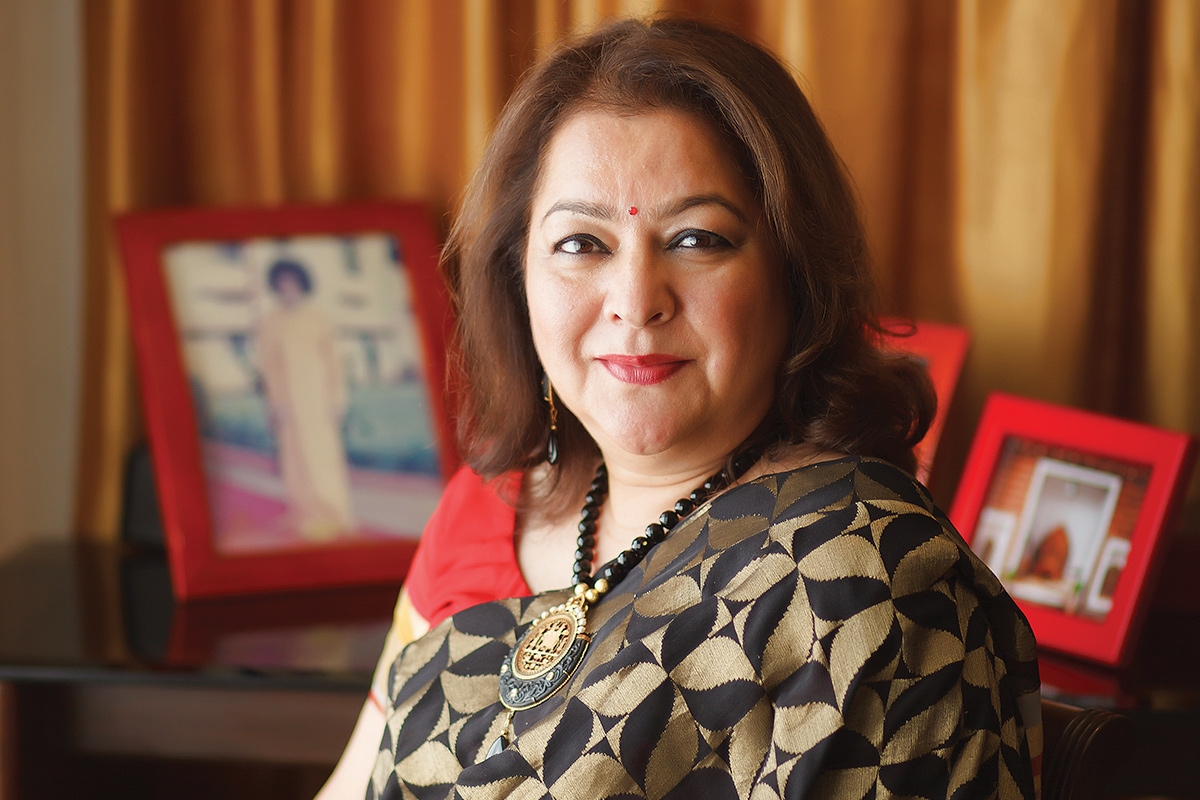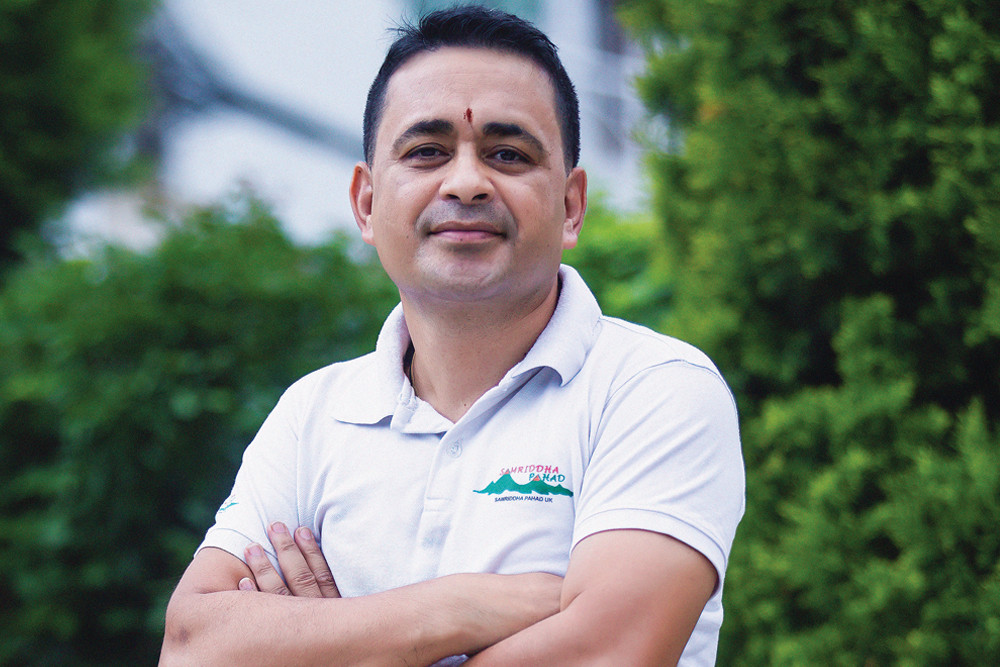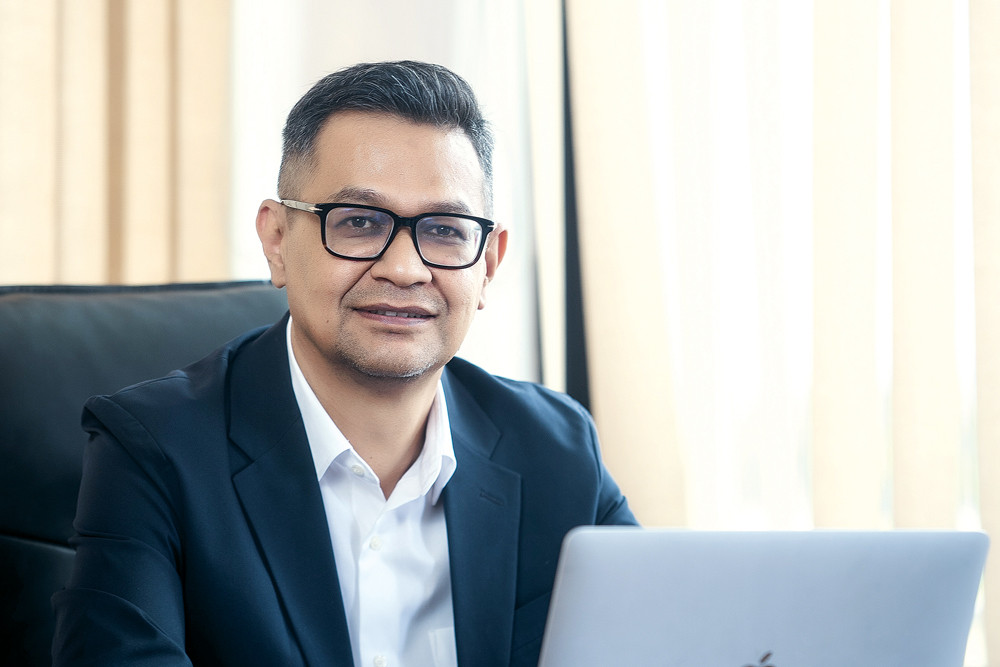
Shreejana Rana leads the Annapurna Group of Hotels as its Executive Director. She is the President of Hotel Association Nepal, and the first female to hold this position in the history of the organisation. Rana is also Vice President and Tourism Convener of the Nepal India Chamber of Commerce and Industry and Program Implementation Sub Committee member of the Visit Nepal Year 2020 campaign.
A dynamic leader with a strong performance record, she works passionately to raise awareness and provide practical solutions to women’s empowerment and sustainable development. Through the Jayanti Memorial Trust, she is also working to bring affordable cardiac care to less privileged Nepalis.
Ankita Jain of B360 interviewed Shreejana Rana to gain insight into her experience as a leader and her thoughts on leadership. Excerpts:
What are the most important values you demonstrate as a leader?
For me, it is important to demonstrate by my actions that transparency, credibility and dignity of labour are paramount. With me, what you see is what you get. I have no hidden agendas. I work very hard; no job is too large or too small. There is a dignity to labour that we must understand and accept. I will clear a dirty plate from a table, pick up trash and dispose it. There is no such thing as a menial work. There is no shame in doing one’s job. There is shame in not doing it well.
What is the most significant change that you have brought to the hospitality industry?
The years of unrest and uncertainties that we lived through pushed our industry into survival mode. Rates across the board were slashed in a desperate need to bring in business. But those days are past now. We must understand that to continue these practices hurts us all. So first and foremost, we no longer compromise on our rates. Many of us lose sight of the fact that our services are far more extensive than those provided by most hotels in the West. We must value them and be proud of ourselves. Underselling our product demeans us all. Our Average Room Rate (ARR) must be strengthened not lowered. And we do this by working together. This is a change in policy that the hospitality industry has taken on board.
An integral part of any industry, but especially ours, is training and development. Back in the 80’s when the industry began to grow, these areas were a priority in our sector. But the following years brought change and turmoil. Training and development faded into the background. Now, we have revived discipline; emphasising its importance. Helping employees to enhance their skills and reach their potential benefits them as well as the industry.
How do you encourage the development of your employees?
We focus strongly on training programmes; some are aimed at specific departments or tasks, others are more general. Employees who want to further enhance their skills on their own are encouraged and supported. Training is a continuous process. It is not a question of attending a class and that is the end of it. The training manager follows up on and monitors the effectiveness of each session. Some programmes are aimed at instilling new skills, others are refreshers. We identify employee strengths and weaknesses and develop ways to encourage their strengths and improve on their weaknesses. Mentoring plays an important part in this process.
How do you resolve conflict?
It is important to be open and unbiased. I include those involved in the resolution process giving them a voice and an impartial hearing. It is not wise to rush. I only come into it if the parties cannot resolve the issue by themselves. It is then important to get all the facts and reach a reasoned decision. It must be clear to everyone that there was no bias or superficiality to the process.
What kind of criticism do you most get?
I have been told that I take on too much. I get so busy at times that I don’t have enough time for certain tasks.
What are some of the most difficult decisions you have made?
Two incidents remain strongly in mind; both involving harassment. In one case, a female executive was harassed and persecuted by several male employees. There was no physical involvement. But the mental trauma was significant. It was also disturbing to realise that to many, it seemed like no big deal. I called a meeting of all employees and made it clear that there would be zero tolerance of such behaviour, that such incidents could not and would not be taken lightly. Not only the individuals involved but all employees needed to understand that what happened was wrong. The men involved apologised to the female executive. By standing up for what was right, the message was clear that in this company no one was going to look the other way. It would be naïve to think that incidents of such a nature ceased from that day but the number dropped dramatically to a few and far between.
The other decision again involved harassment, in this case sexual. It involved an employee who had been with the company for years. He was very capable, effective and well-liked by all who knew him. He was a definite asset to the company. It was difficult as many pushed for him to be given a second chance. But he crossed a line with his actions and there was no going back from that. There was no choice but to ask him to leave.
What motivates you as a leader?
Being a leader was not a path I set for myself. My role evolved over the years. I began as a trainee in hotel management and then worked my way up the ladder. Today, I am proud to be at the head of our group of hotels and of the apex body of the hotel industry. My journey has given me a depth of understanding of my role as a leader. I was privileged to have leaders that I looked up to and who motivated and encouraged me on my journey to where I am today. I strongly wish to justify their belief in me. I want to set an example of leadership to show that doing what is right is not an invitation to failure and having faith in people is not a weakness. But above all, I am motivated by the opportunities to make positive changes that being a leader offers me. It gives me a voice to make a difference. Not just in the business and hospitality sectors but also in women’s empowerment and development and the cardiac health sector. Not many are given such a chance. I do not intend to waste mine.
How do you measure success?
I truly do not wish to be immodest. But since you ask, one measure would be the positions I hold. I am the Executive Director of Hotel Annapurna and the Head of the Annapurna Group of Hotels. I am also the President of Hotel Association Nepal and its first female president; Vice President and Tourism Convener of the Nepal India Chamber of Commerce and Industry; and a member of the Visit Nepal Year 2020 Programme Implementation Sub-Committee. These are not token positions. They are earned and I am proud of them. But for me, a true measure of my success as a leader is to see my ideas and vision become reality. Above all, it is to have made a positive difference to our industry and to the individuals with whom I work.
Do you mentor other aspiring leaders?
You need to identify individuals who not only have the potential to be leaders but also have the drive, the willingness to put in the time and effort and sometimes make the sacrifices needed to get ahead. Then you encourage them, mentor them, expose them to the best and brightest in their field and give them every opportunity to shine. Happily, I am mentoring a couple of individuals right now. They show great potential and are on their professional journey to becoming leaders. Establishing a relationship as a mentor requires trust and faith between mentor and protégé. Once you have that, you build on your relationship by being their guide, counselor and unflagging supporter. You have to be careful not to smother them with advice or to dictate their actions. You have to let them make mistakes. And through it all, you make sure that they can always come to you for advice or a friendly ear to listen to them. It is a wonderful thing to be a mentor and rewarding to watch your protégé grow.
How do you motivate your team?
By treating them as a team, by making them a part of management decisions. My team members know that they are valued, that they have a voice. They are not there to be ‘yes men’. I do not expect or want them to rubber-stamp my decisions. I encourage them to take initiatives and to voice their opinions. I listen to them. I may not always agree but I will always listen. And then if I reach a decision contrary to theirs, I will explain and not just announce a diktat from on high. My team members know that they are not just subordinates but individuals with responsibilities that I expect them to take care of without my watching over their shoulders. They know that they make a difference to the company.
What sort of a leader would your team say you are?
I really don’t know. But I hope that they will say that I am one who they trust and have faith in; that I ‘walk the talk’. That I inspire them and that I make working in the company feel less like a job and more like their passion.
What do you consider your greatest strength and weakness?
I am very hard working and am not afraid of hard decisions. I strongly believe that you never stop learning and you should never stop as well. I certainly don’t know it all, no one can. I lead by example. I prefer to lead alongside people and not put myself above others. I am approachable and am open to suggestions and ideas from anyone. I am also willing to be told that I am wrong. I may not agree! But I have no ego when it comes to this. Leaders who surround themselves with people who always agree with them are leaders that will eventually fail.
I am afraid that my greatest weakness is time management. I like a full workload but getting everything done without burning out is a challenge. I am teaching myself, however, to reign in my tendency to over-commit and over-work.


.jpg)


.jpg)